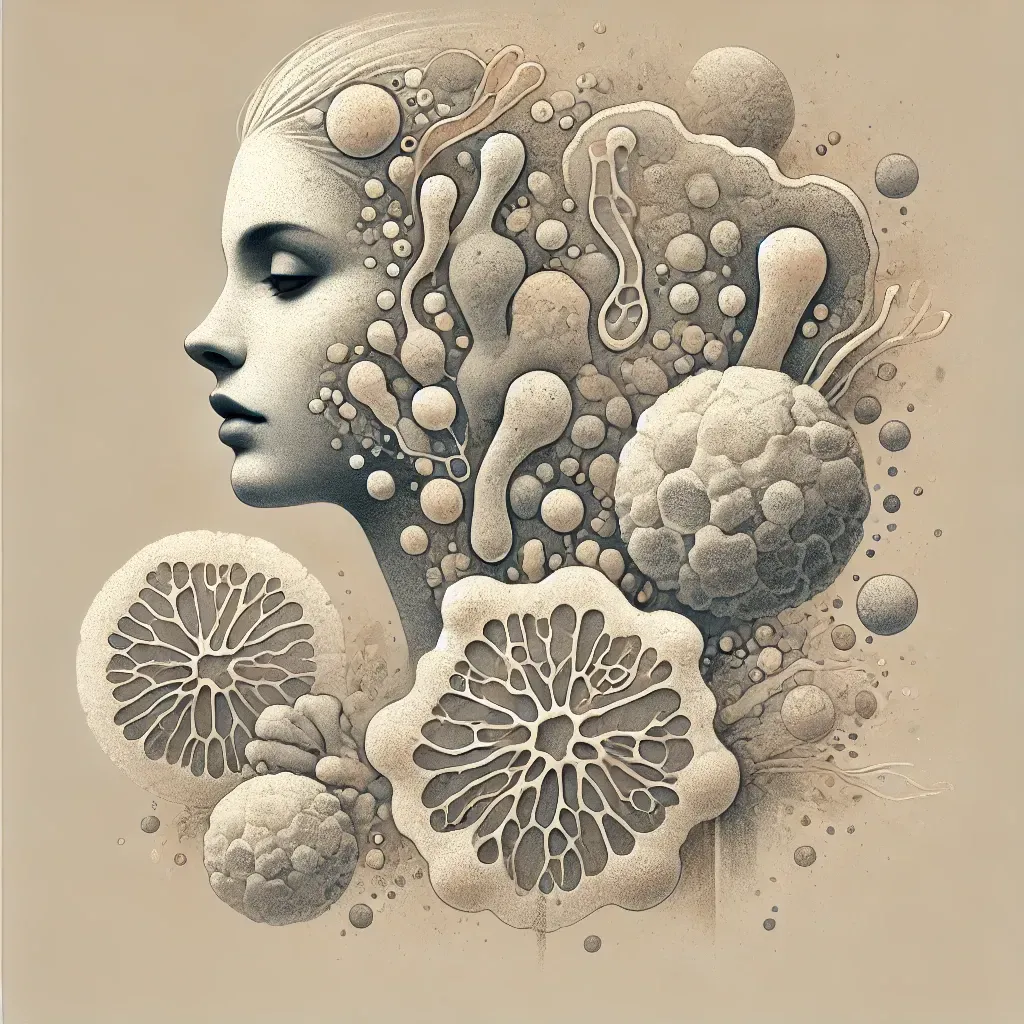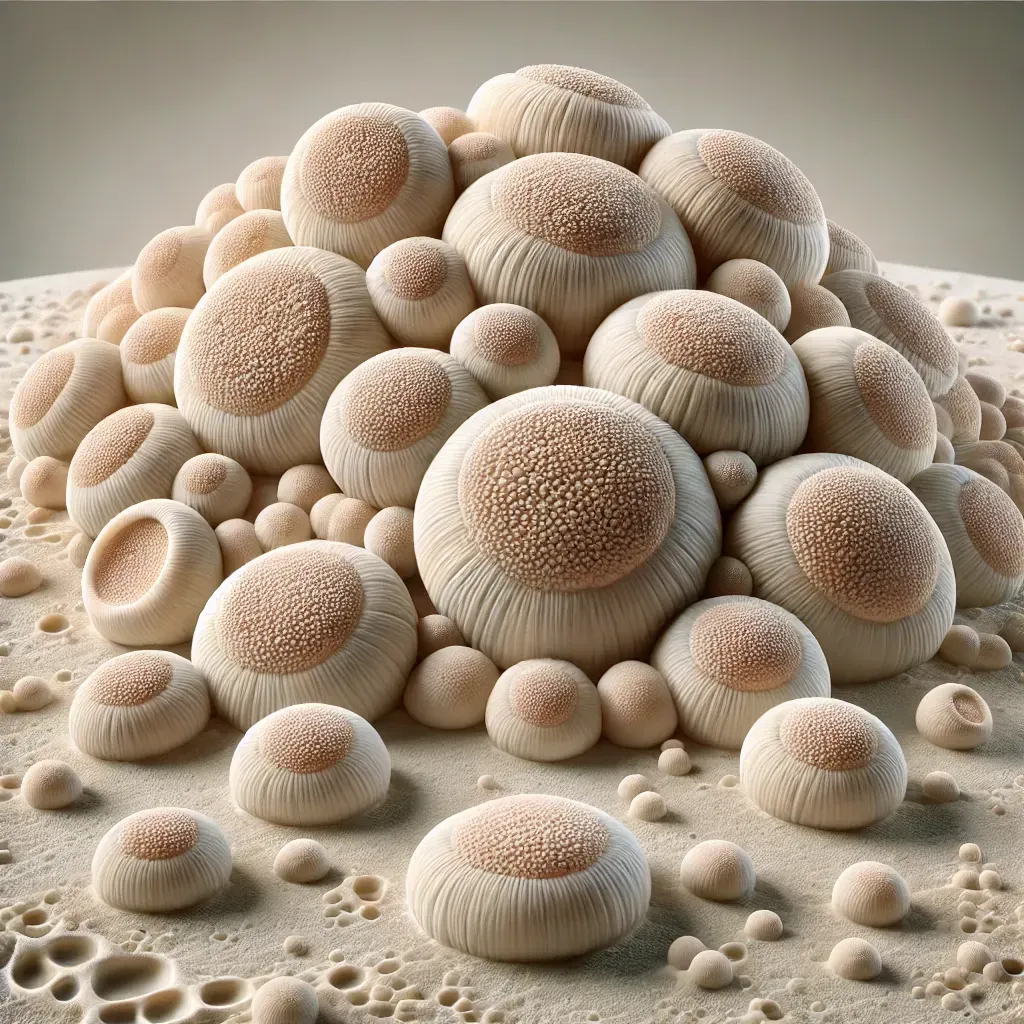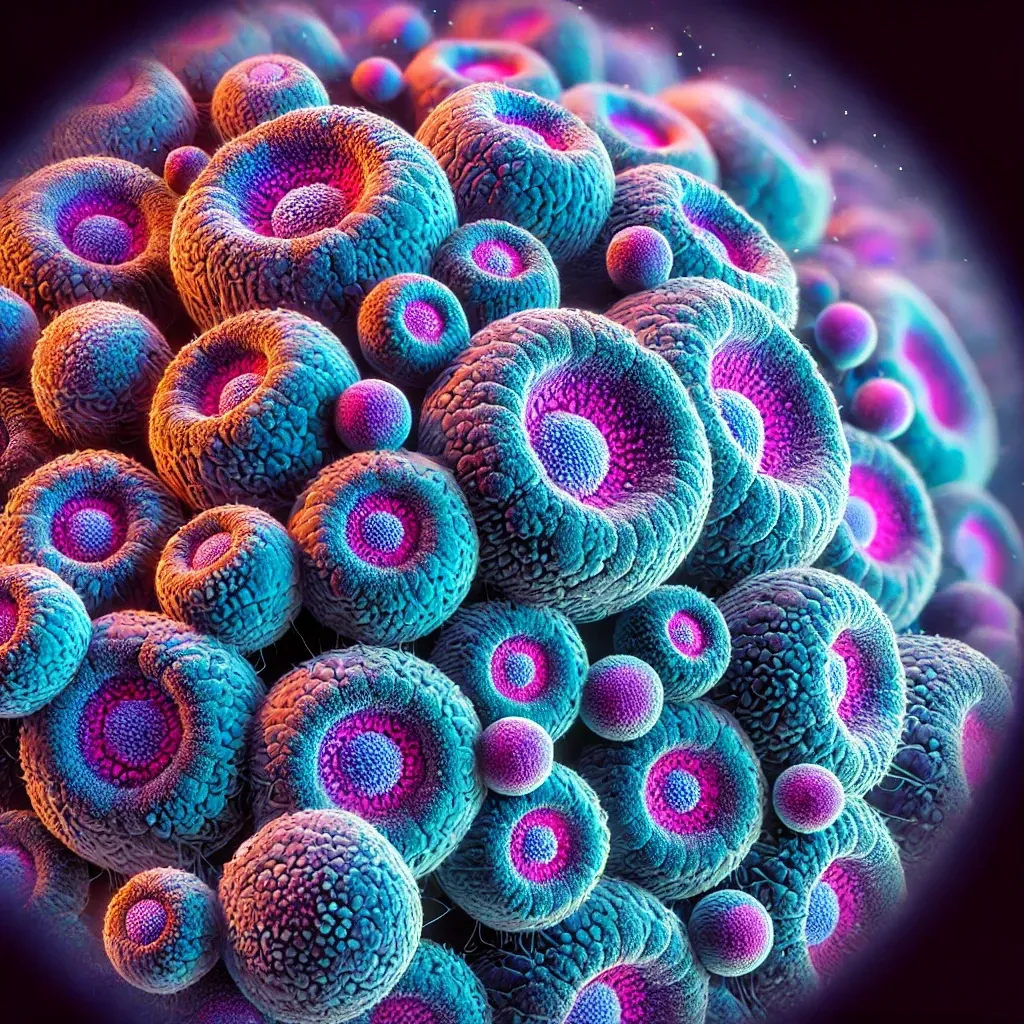Too Much Estrogen In Your Gut
The Gut Bacterial Microbiome Includes bacterial genes whose products are capable of metabolizing estrogens
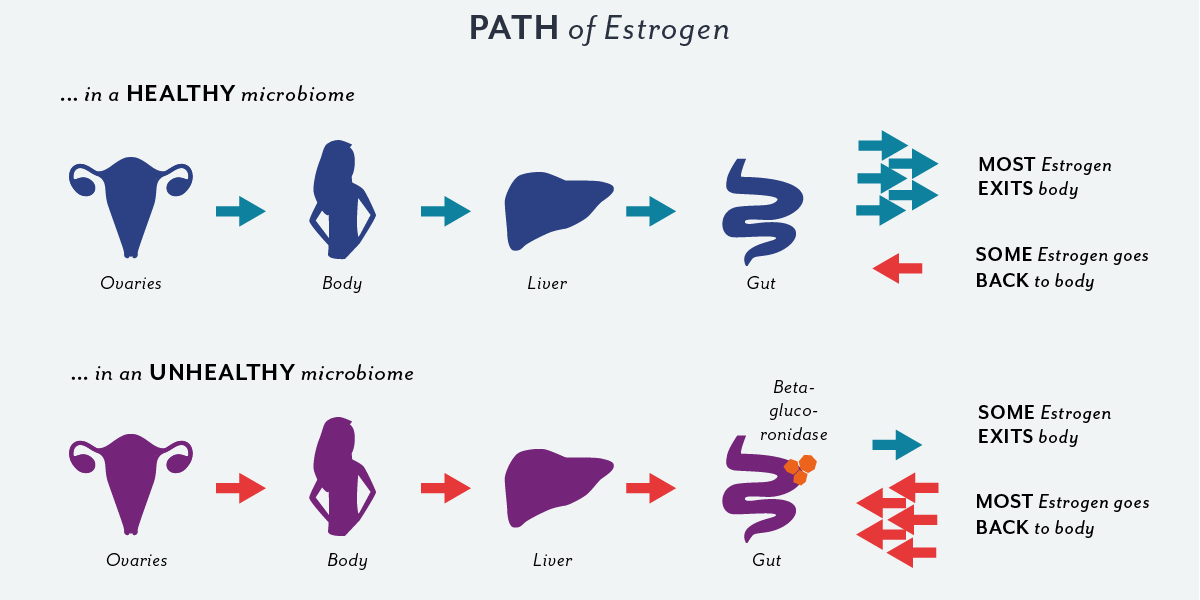
Your gut is probably your biggest source of excess estrogen. All estrogens (including estrogen-like environmental toxins) are detoxified through your intestinal bacteria. If your bacteria are not healthy, you will reabsorb the hormone estrogen, whether you are male or female.
The gut contains a collection of microbes, called the estrobolome, responsible for metabolizing estrogens. The estrobolome produces an enzyme (beta-glucuronidase) that breaks down active estrogen which helps the liver detox
and filter used estrogen and maintain proper hormone levels throughout the body [1].
When your gut is healthy, everything works great and hormones are balanced. When you have gut issues or dysbiosis, the beta-glucuronidase enzymes levels in the estrobolome increase and can’t do their job properly, which could produce either a deficiency or excess of toxic estrogen [2]. Everything goes haywire.
Chris Kresser, a leader in functional medicine, really keys in on the importance of estrogen in the body: “It regulates body fat [distribution and storage], female reproductive function, cardiovascular health, bone turnover, and cell replication. Gut dysbiosis has the potential to alter the estrobolome, disrupt estrogen homeostasis, and impair these processes, promoting the development of chronic diseases” [1].
In short, your sick stomach might be causing a whole world of other issues via hormonal imbalance. The ones that come to mind easily are typically female issues such as endometriosis; polycystic ovary syndrome (PCOS); and breast, endometrial, cervical and ovarian cancer. But you might not have been aware of all the other issues that can come from hormone imbalance and affect BOTH women AND men such as obesity, cardiovascular disease, osteoporosis, and prostate cancer (obviously just in men). All of the aforementioned include an imbalance of estrogen in the body.
How do you test your tummy to figure out if this is what’s going on? A GI MAP (Gastrointestinal Microbial Assay Plus) is the best way to collect the results. A sample of your stool will be examined for pathogens including bacteria, parasites and viruses that could be screwing up your system. A GI MAP can also test your levels of the beta-glucuronidase enzyme to see if they are normal or if they are blocking your estrogen from getting to your liver [2].
And once you know what’s causing all your hormone imbalance symptoms, then what? Well, it’s time for some changes. You’re not going to get better by continuing on the way you have been, and that means you’ll likely have to change your diet and lifestyle.
You might already be trying to eat healthy. Maybe you have a largely plant-based diet. But there are lurkers out there, even in the so-called “good for you” foods. Some plants have a high amount of estrogen that can be absorbed into the body after ingestion. These are called phytoestrogen. The most notable is soy, which is encouraged as a good alternative source of protein instead of meat, but it can be dangerous to your system if consumed in large quantities. Also included on this list are tempeh, flax, oats, beans, rice, apples, carrots, coffee, and even beer [3]. If you’re diet includes too many phytoestrogens, you are putting more estrogen into your body than it can process, and you might need to dial it back a bit, substituting other forms of healthy foods.
Also, PROBIOTICS! Not just a buzzword anymore, science has proven the good impact of probiotics on your gut. Trials with broad-spectrum Lactobacillus probiotics have been found to:
- Regulate estrogen and testosterone—good for those suffering with PCOS
- Suppress ectopic tissue grown—is helpful for healing those suffering from endometriosis
- Prevent bone loss—for those at risk for osteoporosis
- Demonstrate anti-carcinogenic effects in breast tissue—suggesting that supplementation may be useful in the prevention of breast cancer [1]
- Probiotics can be a great place to start to balance hormones naturally verses going straight to hormone replacement therapy. Natural hormone replacement is always better than prescription drug therapy.
So let’s figure out what’s going on in your gut that’s causing your male or female hormone imbalance, and we’ll balance it together.
To order broad-spectrum Lactobacillus probiotics or other supplements to balance hormones, click on the link to our store.
1. https://kresserinstitute.com/gut-hormone-connection-gut-microbes-influence-estrogen-levels/
2. https://www.planetnaturopath.com/hormones/high-beta-glucuronidase-and-how-it-affects-estrogen-and-detoxification/
3. https://en.wikipedia.org/wiki/Phytoestrogen
Don't Miss Out!

Heidi Toy Functional Medicine Blog
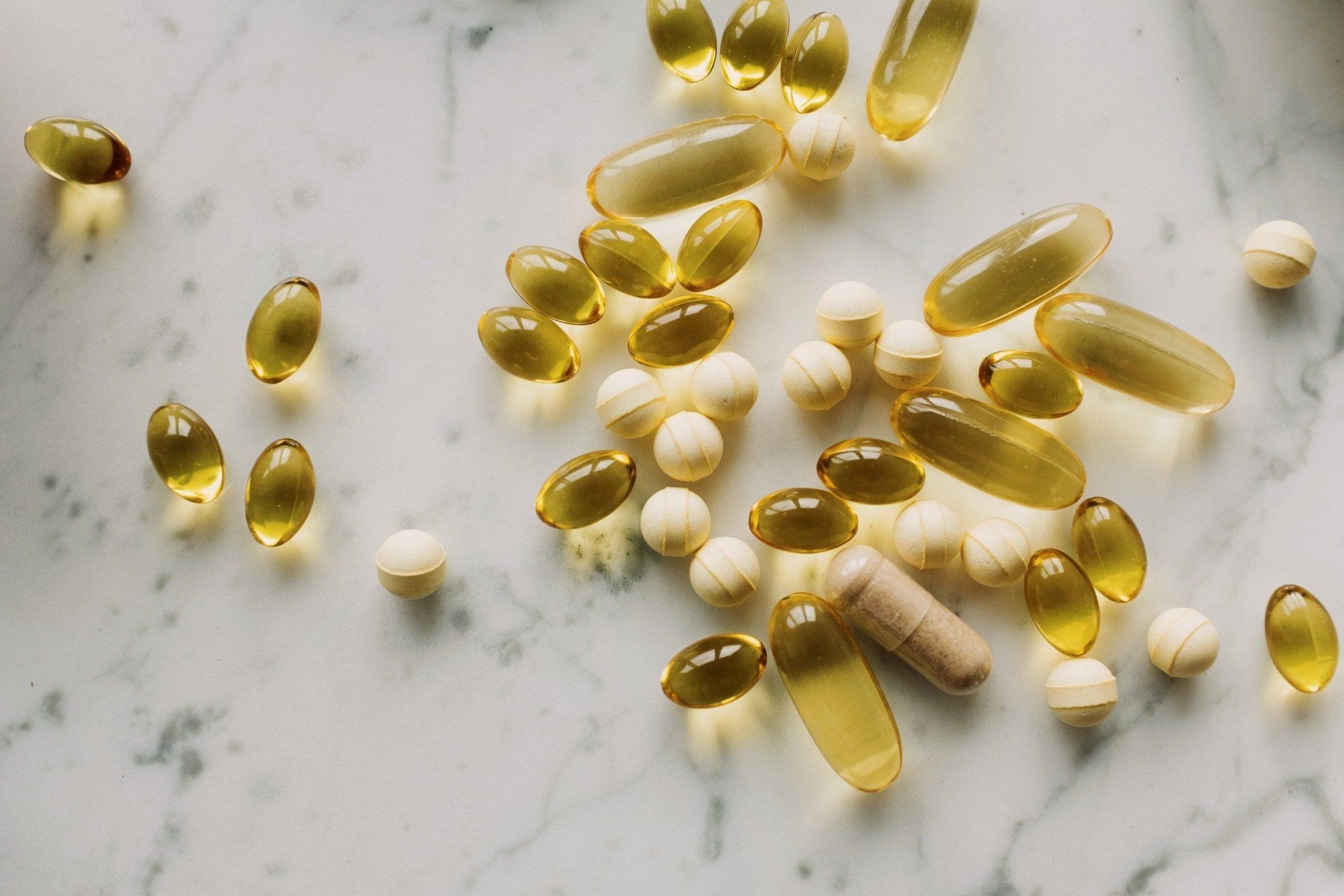
Omega-3 and Omega-6 are considered “essential” fatty acids because they cannot be produced by the body--we get them from the food we eat. They are biologically active upon ingestion, which means the body utilizes them right away and cannot store them up for later. They are essential because they help with both inflammatory and anti-inflammatory responses.

One of the reasons fad diets often fail is because they are not sustainable. The other reason is because they usually harm different systems in the body as much as they are meant to help. As with all health issues, when it comes to diet, everything should be in moderation. The following five diet points all involve TOO much of a “good thing”:


